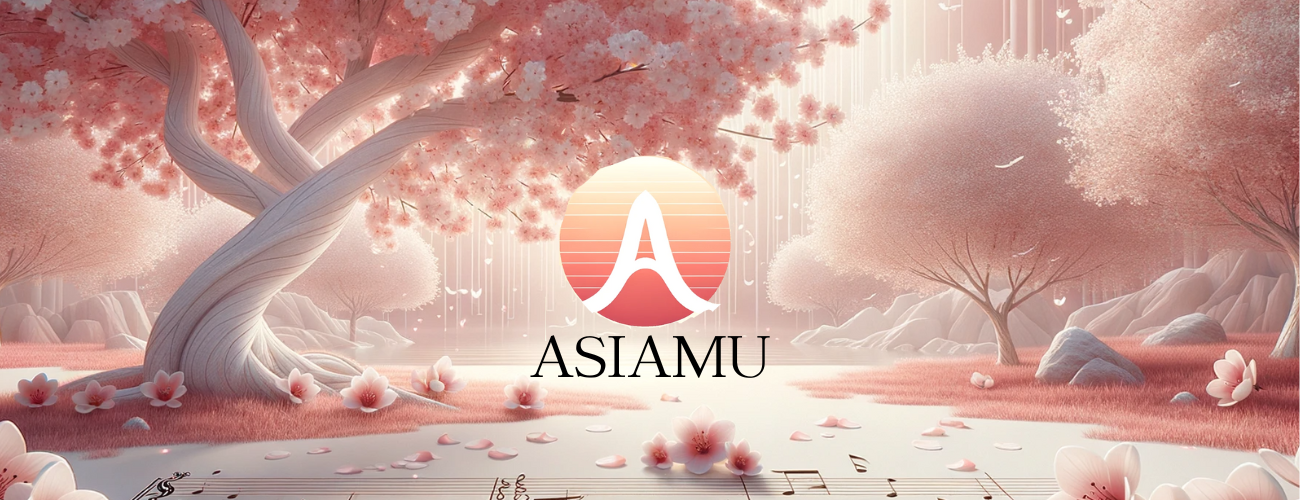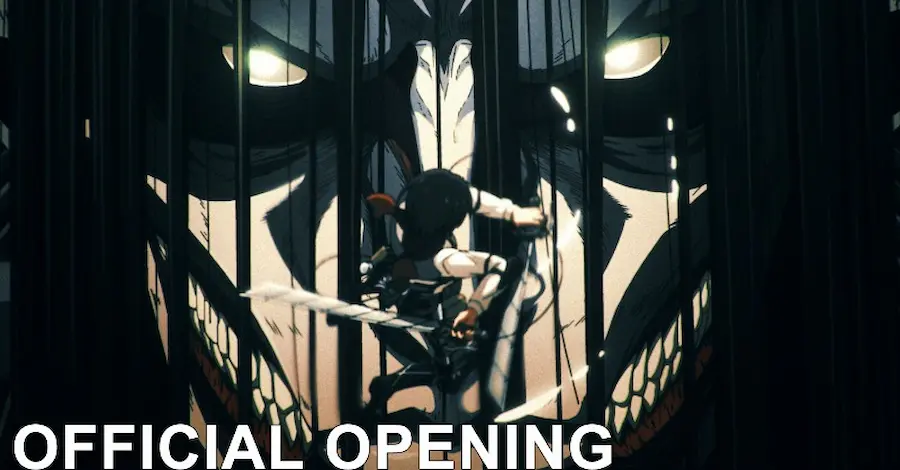This article translates the lyrics of Linked Horizon’s new song called ‘Nisennen… Moshiku wa… Nimannen Go no Kimi e’ into English and adds romanized lyrics.
and explanation of the meaning of the lyrics and vocabulary explanations are included.
This song is an opening theme for Attack on Titan The Final Season (Japanese: TVアニメ「進撃の巨人」The Final Season 完結編)
All articles are free to link. Please feel free to share the URL of this page for reference.
Be sure to follow us on Twitter (X) so you don’t miss any future updates! 😊✨Follow @asiamu7899
Nisennen… Moshiku wa… Nimannen Go no Kimi e
Linked Horizon
[イントロ]
An dich in zweitausend oder zwanzigtausend Jahren
Two thousand years… or perhaps… to you, twenty thousand years later…
[Verse 1]
弔いの花の名前も知らず
Not knowing the names of the mourning flowers
(弔いの花 (Mourning Flower): In Japan, flowers are often used to honor the deceased, and each flower has its own meaning. Not knowing the name of the flower could symbolize a disconnect with tradition or a focus on the emotion rather than the ritual.)
飛び去りし鳥の遺したあとに
After the birds have flown away
草木は芽吹き今年もまた春が来る
The plants and trees bud again, and spring returns once more
冬を置き去りに
Leaving behind the winter
[Verse 2]
巡る季節に恨み歌えど
Even though I sing songs of resentment with the passing seasons
(巡る季節 (Changing seasons): The inevitability of time passing and the cycle of life are common themes in Japanese poetry, often used to express both beauty and sorrow.)
あなたは二度と 帰ってこない
You will never return again
最後の口づけを赤く染めたのは私
The last kiss that colored red was from me
(最後の口づけを赤く染めた (Last kiss dyed red): This could be a metaphor for a deep, possibly painful, final interaction with someone or something.)
他の誰でもない
And from no one else
[Chorus]
震える首筋を 包み込む温もり
The warmth that envelops my trembling neck
私は何度でもこの寒さに立ち向かう
I will face this cold countlеss times
戦えと 戦えと 繰り返す あなたの言葉
“Fight, fight,” your words repeat
今でも絶えず まだ響いてる
Even now, they still resound
[Verse 3]
時が運んだ 穏やかな日々
As time carries on, gentle days
手向けた花のように
Like flowers offered as tribute
秘めた言葉は 誰にも告げず逝く
The hidden words go to the grave without telling anyone
[Verse 4]
レクイエム レクイエム
Requiem, requiem
(※レクイエム (Requiem): A mass for the repose of the souls of the dead, indicating mourning and remembrance.)
檜には君が愛した花を
罪を散すなら 暁よ照らせ
If you’re to scatter sins, Let dawn illuminate the flowers you loved on the cypress
(檜 (Japanese cypress): A tree associated with temples and sacred spaces in Japan, also used for its durable wood in traditional construction.)
[Bridge]
Die Welt das Schwert des Jungen zerbrochen hat
When the world has broken the boy’s sword
Wird die Spitze des Wolkenkratzers erreichen
He will reach the top of the skyscraper
Und auf den Turmbau zu Babel lachend herunterblicken
And look down on the Tower of Babel with laughter
Hass und Sorge sind eine zweischneidige Ebene
Hate and worry are a double-edged plane
Die Geschichte wiederholt sich
History repeats itself
[Verse 5]
産めよ増やせよと 大地に満ちて
Fruitful and abundant, the earth is filled
鋼鉄の鳥を空へ放った
The steel bird is released into the sky
自由は紅蓮の弓矢となって
Freedom becomes a crimson bow and arrow
何度も繰り返す
Repeating many times
[Chorus]
投げ返す石を捨てられずにいる
Unable to throw away the stones we throw back
臆病な俺たちが見上げた空
The diseased humanity gazes at the sky
流星に似た 冥府の弓矢
The bow and arrow of Hades, similar to a meteor
歴史は繰り返す
History repeats itself
そしてまた 《無 (ゼロ) 》 になる
And becomes “zero” once again
[Outro]
聴こえるか? モリを出る
Can you hear it? Leaving the forest
何度道に迷っても
No matter how many times we get lost on the path
焼け野原にも草木は芽吹いた
Even on the scorched field, plants and trees bud
文明が持つ影と光
The shadows and the light of civilization.
(文明が持つ影と光 (The shadows and lights that civilization holds): This likely refers to the good and bad aspects of societal development.)
総べてを見ていた 大樹の洞 で
In the hollow of the great tree that saw everything
(大樹の洞 (The hollow of a great tree): Could represent wisdom, history, or nature as an observer to human life.)
君は何を識る ?
What do you understand?
La-la-la-la, la-la-la-la
二千年… 若しくは… 二万年後の君へ・・・
Two thousand years… or perhaps… to you, twenty thousand years later…




コメント